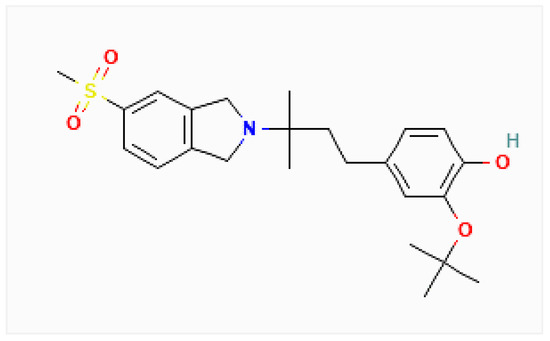Cognition Therapeutics and ACTC Receive FDA Clearance for Phase 2 START Study of Oral CT1812 in Early Alzheimer’s Disease

Cognition Therapeutics, Inc. (NASDAQ: CGTX) announced that it has cleared the U.S. Food and Drug Administration comment period and may now proceed with the 540-patient Phase 2 START study of CT1812 in adults with mild cognitive impairment or early Alzheimer’s disease. This randomized placebo-controlled trial will be conducted at approximately 50-to-60 sites in North America including those premier institutions in the Alzheimer's Clinical Trials Consortium (ACTC). CT1812 is an investigational oral small molecule that binds to a receptor on synapses and is designed to prevent the toxic effects of soluble beta amyloid (Aβ) oligomers on neurons, which drive the progression of neurodegenerative diseases such as Alzheimer’s disease.
“The initial clinical results observed with CT1812 are encouraging and we look forward to advancing it into the START trial to evaluate its effects in a larger study in people with early Alzheimer’s disease,” said Christopher H. van Dyck, M.D., director of the Yale Alzheimer's Disease Research Center and primary investigator of the START study. “We envision a future with multiple treatment options, to be used alone or in combination according to evidence, to achieve the greatest slowing of Alzheimer's disease progression.”
The START study is supported by a grant of approximately $81 million for 5 years from the National Institutes of Health’s (NIH) National Institute on Aging (NIA) to accelerate development of new therapies for Alzheimer’s disease.
“The START study and ACTC represent some of the many ways that NIA funds research into novel therapeutics for treating Alzheimer's and related dementias,” stated Laurie Ryan, Ph.D., an NIA clinical research program official.
“We appreciate the continued support of the NIA, which has been an important partner in our work to develop CT1812. Our lead drug candidate is a potentially disease-modifying oral therapeutic for the treatment of Alzheimer's disease and other neurodegenerative conditions,” added Cognition president and CEO, Lisa Ricciardi. “With the NIA's funding, we have been able to complete a series of preclinical and clinical trials, thus advancing our understanding of CT1812 and the role of the sigma-2 (σ-2) receptor in Alzheimer’s disease. We look forward to recruiting patients for the START study with our collaboration partners at the ACTC.”
“ACTC aims to accelerate Alzheimer’s drug development, working with academic and industry partners,” said Paul Aisen, M.D., professor of neurology at the University of Southern California and director of the Alzheimer's Therapeutic Research Institute. “The START study is an important component of ACTC efforts. Having an authorized protocol for the START study is a critical step in preparing to open clinical sites for the trial by mid-2023.”
About the START Study
The study will measure the efficacy and tolerability of once-daily oral CT1812 in individuals with mild cognitive impairment or early Alzheimer’s disease (MMSE 20-30) who have elevated Aβ (as measured by PET or CSF). Participants will be randomized to receive CT1812 or placebo for 18 months. The study will assess cognition and executive function using validated tools including the Clinical Dementia Rating Scale Sum of Boxes (CDR-SB) and ADAS-Cog rating scales, as well as biomarker and safety findings. Funding is provided by a grant from the NIH (R01AG065248). More information may be found on www.clinicaltrials.gov under trial identifier NCT05531656.
About CT1812
CT1812 is an oral small molecule designed to penetrate the blood-brain barrier and bind selectively to the sigma-2 (σ-2) receptor complex. The σ-2 receptor complex is involved in the regulation of key cellular processes such as membrane trafficking and autophagy that are damaged by toxic interaction with Aβ oligomers, oxidative stress and other stressors. This damage to sensitive synapses can progress to a loss of synaptic function, which manifests as cognitive impairment and Alzheimer’s disease progression. CT1812 is currently in development for mild-to-moderate Alzheimer’s disease in the SHINE study (NCT03507790) and dementia with Lewy bodies in the SHIMMER study (NCT05225415).
About the Alzheimer's Clinical Trials Consortium (ACTC)
The ACTC, funded by the National Institute on Aging at the National Institutes of Health (grant number U24AG057437), provides the infrastructure for academic clinical trials in Alzheimer's disease and related dementias. The consortium, jointly based at the University of Southern California, Harvard University and the Mayo Clinic, includes expert units to support clinical trial design, biostatistics, informatics, medical safety, regulatory oversight, recruitment, clinical operations, data management, site monitoring, a biomarker laboratory and repository and neuroimaging. The ACTC includes 35 primary clinical sites across the United States.
About Cognition Therapeutics, Inc.
Cognition Therapeutics, Inc. is a clinical-stage biopharmaceutical company engaged in the discovery and development of innovative, small molecule therapeutics targeting age-related degenerative disorders of the central nervous system and retina. We are currently investigating our lead candidate CT1812 in clinical programs in Alzheimer’s disease, dementia with Lewy bodies (DLB) and dry age-related macular degeneration (dry AMD). We believe CT1812 and our pipeline of σ-2 receptor modulators can regulate pathways that are impaired in these diseases. We believe that targeting the σ-2 receptor with CT1812 represents a mechanism functionally distinct from other current approaches in clinical development for the treatment of degenerative diseases. More about Cognition
SOURCE: Cognition Therapeutics
Published on Thursday, 23 February 2023



